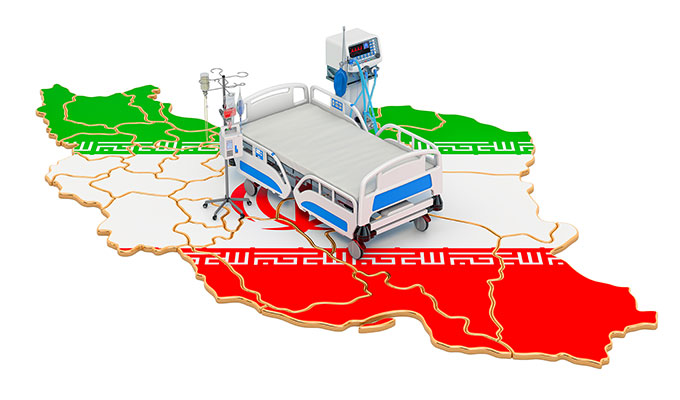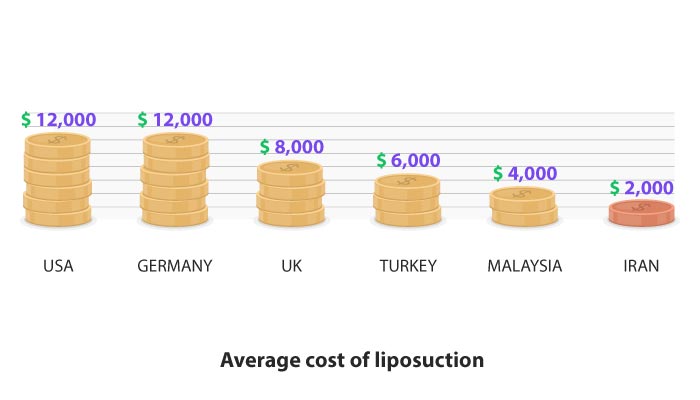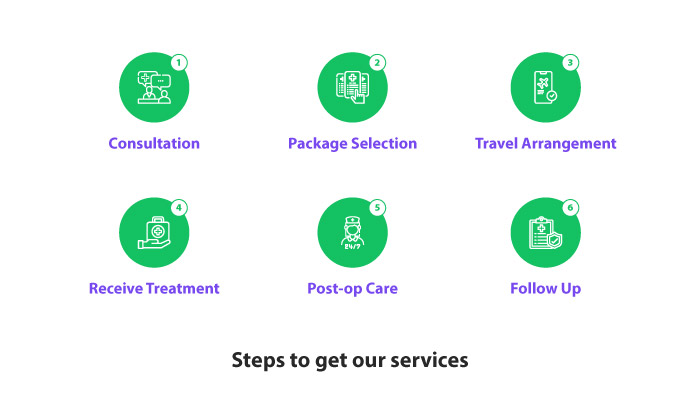Including These Services for Free
Medical tests
Post-operative care
Visa and Travel insurance
Interpreter
Food for all days
Medical consultation
Airport Pick up/Drop off
SIM card
Shopping
Sightseeing Tours
Medicine
Follow up
VIP Transfer
Internet

Flora medical tourism facilitator offers all-inclusive Kidney Transplant Packages all across Iran(Tehran, Mashhad, Kish island, Shiraz, Tabriz, Esfahan, Yazd, Ahvaz, Sari…), for any budget.
7 Night Accommodation in Iran




Flora medical tourism facilitator only has partnerships with the best hotels.
We will reserve accommodation for you at up to 40% lower price than anywhere else.
ALL INCLUSIVE KIDNEY TRASNPLANT PACKAGE IN IRAN from $11,100
What is Kidney Transplant?
A kidney transplant is a surgical operation to place a healthy kidney from a donor into another receiver’s body with a malfunctioning one. The kidneys are a pair of bean-shaped organs located on either side of your spine, just below the rib cage. Their main function is to filter the blood to purify it from waste, excess minerals, and fluid. Due to some factors, kidneys may fail to work properly and become unhealthy. These include Diabetes, Chronic, uncontrolled high blood pressure, Chronic glomerulonephritis, and Polycystic kidney disease. In this case, a kidney Transplant procedure is a highly useful operation to get a new and healthy kidney in place. To get an overall view about Kidney Transplant, keep reading the following package!
Kidney Transplant Step by Step in Iran
1. Consultation for Kidney Transplant
Consultation is a must before every surgery. During a session before surgery, you will undergo a full physical and mental examination. These include Chest X-rays, Electrocardiogram (ECG), Urinalysis, and blood tests. The results can help the doctor find if you are a good candidate for the surgery. As for Kidney Transplant, you will be informed generally about the procedure during this session. The information includes preparation and recovery after the procedure. Feel free to ask whatever you want during this setting.
2. Kidney Transplant Surgery
Kidney transplantation is usually performed under general anesthesia. The main operation starts by making a cut in your lower abdomen. Next, one surgeon removes the kidney from the donor while another transplants it into the right or left groin. Then, the blood vessels will be found, and then the newly transplanted kidney is connected to the blood vessels and your bladder. The surgeon will make sure that your blood can flow through an artery into the transplanted kidney, and then a vein filters the blood out. The procedure typically takes between 3 to 5 hours.
3. Recovery for Kidney Transplant in Iran
If you want to have a successful kidney Transplant operation, then you require a good recovery time. After having your surgery with Flora, you will stay your first week of recovery in Iran. During this time, our nurses and specialists will be having regular examinations of your recovery status. To minimize the associated risks, follow below recovery tips right after the surgery:
- Depending on your condition, you will stay 1-2 days in the Hospital
- Pain and soreness are natural during the first week
- Feeling numbness around the cut
- Drain tubes must stay for at least 5 days to avoid fluid build-up
- You can start gentle exercise and walking after the first week
4. Follow-up for Kidney Transplant
The full recovery of Kidney Transplant takes more than a single week. Therefore, there are also tips that you must follow after getting back home. Floramedtour will provide you with 2 years of follow-up services to make sure you have a successful Kidney Transplant. Make sure that you follow the below instructions during your follow-up:
- You might feel fatigue after the surgery which will usually go away after 3 weeks
- Get rest whenever you feel tired
- Going back to work is usually possible after 4 weeks
- For lifting and heavy jobs, wait at least 10 weeks after the surgery
- Do not drink more than 14 units of alcohol a week
- Have a glass of water after drinking
- Avoid eating out or having takeaways for the first 6-8 weeks
- Smoking is not allowed for 2 weeks
- Follow a diet low in salt and high in fiber
- Keep your body well-hydrated during your full recovery
Why is Iran a Wise choice for Kidney Transplant?
Are you wondering which place to go for your kidney treatment? Then, read the following reasons about why Iran could be your best choice:
- Low price of Kidney Transplant surgery compared with the average world cost
- Frequent positive feedbacks from the patients who have had a successful surgery in Iran
- Providing a vast array of innovative treatment options
- Using advanced medical facilities and equipment
- Dedicated and skilled medical staff who are ready to help you anytime
- Treatment by top-rated and board-certified surgeons
- Visiting tourism attractions and historical sites of the ancient land of Iran
How much does Kidney Transplant Cost?
Cost of Kidney Transplant heavily depends on your medical destination and the offered quality of medical services. If not covered by health insurance, Kidney Transplant costs $143,500 averagely. The price can soar up to $442,500 United Stated with per unit and €75,000 in Germany. This price only includes the surgeon’s fee and the price paid to the kidney donor. Hospital stay and other treatment services charge you additional fees. Sometimes cheaper prices might come at the cost of having way more risks. Here, we can offer you safety and great prices at the same time. Here in Iran, the average price of Kidney Transplant is $11,000 for each surgery. At Flora, we try to provide great treatment options by experienced and board-certified surgeons. Plan your Kidney Transplant with Floramedtour and enjoy our amazing offer for only $11000 covering your whole surgical operation with several free services.
Kidney Diseases
There are some diseases that might affect kidneys. Knowing these diseases can be quite helpful and even lead patients to stop it from worsening. In the following you can find the common types of Kidney diseases with a brief description:
- Cystinosis: This is a rare disorder in which a natural chemical called cystine builds up in your body and cause health problems.
- Glomerulonephritis: Glomerulonephritis means injuries to the tiny filters in the kidneys (glomeruli). It may be cause by the attack of immune system on healthy body tissue. This tissue damage makes blood and protein to exit though the urine. Glomerulonephritis can come either suddenly (acute) or gradually (chronic).
- IgA Nephropathy: IgA nephropathy, aka Berger’s disease, is a kidney disease in which Immunoglobulin A (IgA) proteins gets stuck in the kidney. This causes inflammation that damages kidney tissues. This disease makes blood and protein lead into urine and thus may cause the kidney to lose function.
- Lupus Nephritis: Lupus nephritis is an autoimmune disease that inflames the structures of your kidneys that filter out waste. This may lead blood and protein to leak into the urine. If not treated soon, this may cause a kidney failure.
- Polycystic Kidney Disease: Polycystic kidney disease (PKD) is the formation of clusters of cysts within your kidneys, causing your kidneys to enlarge and lose function over time. Cysts are abnormal sacs containing fluid within a tissue. Their formation in this disease is mostly associated with inheritance.
- Rare diseases: There are other rare diseases that can damage your kidneys and lower its function of filtering waste and fluid out of your blood. This damage can lead to chronic kidney disease or kidney failure.
Preparing for Kidney Transplant
As Kidney Transplant carries several surgical risks, it is necessary that you prepare yourself before. Please follow the below instructions during your preparation period:
- Do physical activity or exercise daily for 20 to 30 minutes for 6 weeks prior to your surgery
- Follow a good and healthy diet
- Stop smoking for a month before surgery
- Avoid drugs like aspirin, ibuprofen, and blood thinners for a week before the surgery
- Stay away from drinking for at least 6 months before Transplant
- Don’t miss any dialysis sessions
- Take the necessary blood tests to determine your kidney match; these tests include blood typing, tissue typing and cross-matching
Who can Donate his/her kidney?
There are two types of donors for kidney Transplant; deceased and living. Each type of donor must fulfill some requirement to be able to donate his/her kidney. A living person who is willing to donate his/her kidney must be in full health. A good living candidate should usually have the following features:
- Good physical and mental health
- Having a normal Kidney function
- They should be at least 18 years old
- Lack of conditions such as uncontrolled high blood pressure, diabetes, cancer, HIV, hepatitis, or acute infections
- No habit of heavy smoking or drinking
For a deceased donor, the following requirements are necessary:
- Lack of addiction to smoking
- The age of deceased donor is better to be less than 60
- No history of high blood pressure
- Having a healthy kidney without Creatinine or kidney disfunction
Kidney Transplant Techniques
The techniques for Kidney Transplant are either for surgery one the donor or for the receiver. Read below to know the main techniques for each type of surgery.
-
Techniques for donor
Laparoscopic nephrectomy: Laparoscopy is the preferred method for surgery on kidney donor. During laparoscopy, a wand-like camera, called laparoscope, is passed through small incisions into the abdominal wall (stomach). Through the camera, the surgeon can get a great view of the abdominal cavity to remove the kidney through a small incision. Laparoscopic surgery can offer several advantages over an open surgery. These include shorter recovery time, smaller incisions, and fewer associated risks and complications.
The “open” procedure: The open technique uses comparably large incisions to remove the kidney. This procedure might comes with significant pain, longer recovery, and more surgical risks and complications.
-
Techniques for receiver
Heterotopic kidney transplant: In a heterotopic transplant, the kidney is placed in a different location than the living kidneys.
Orthotopic Kidney Transplant: In Orthotopic Kidney Transplant, the new kidney can be placed at the original location or immediately next to the existing kidney.
What Doctor can perform Kidney Transplant?
To have a successful surgery, it is very important that you find a good surgeon for your Kidney Transplant. The following types doctor can perform a Kidney Transplant:
- transplant surgeons specialized in transplanting kidney, liver, pancreas, and other organs.
- General surgeons with specialization and experience in treatment of various types of diseases, disorders and conditions.
- Pediatric surgeons specialized in surgeries for infants, children and adolescents.
How Kidney Transplant matches?
Kidney Transplant involves some additional blood tests compared with a normal surgery. To be able to receive a kidney from a donor, your blood types must match each other. “Cross-matching” is the process of matching blood donor blood types with your blood type. You can only receive kidney from a donor whose blood type is a match for you. The below table can help you know from what blood types you can receive a kidney transplant:
| Receiver blood type | Donor blood type |
| O | O |
| A | A, O |
| B | B, O |
| AB | A, B, AB, O |
Diet for Kidney Transplant
To avoid Kidney Transplant rejection, try to follow a good and healthy diet during your recovery. The following features can generally make a good Kidney Transplant diet for you:
- Get foods low in salt and high in fiber
- Keep your body well-hydrated
- Use a variety of fresh fruits and vegetables, lean meats, reduced-fat dairy products, whole grains, and plenty of water.
- Avoid eating fatty foods and fast foods
- Do not consume some antibiotics such as Erythromycin, anti-seizure medicines, and herbal medicines and remedies such as St. John’s wort, Echinacea
Risks of Kidney Transplant
The risks associated with Kidney Transplant include:
- Formation of Blood clots and bleeding.
- Leaking from or blockage of the tube that links the kidney to the bladder (ureter)
- infection
- Rejection of the donated kidney
- An infection or cancer passed on from the donor
Kidney Transplant Success Rate
Knowing the risks associated with a Kidney Transplant, you might want to know about success of the surgery. The success rate mainly depends on the type of donor; deceased or living. The below chart can give you a good idea of the success rate for Kidney Transplant surgery:
| Type of donor | Factor | 1-year rate | 5-year rate | 10-year rate |
| Living donor | Graft survival | 95% | 88% | 79% |
| Patient survival | 98% | 95% | 85% | |
| Deceased donor | Graft survival | 90% | 79% | 66% |
| Patient survival | 95% | 88% | 83% | |
| Overall rate | Graft survival | 97% | 92% | 73% |
| Patient survival | 96% | 89% | 84% |
There is also a difference between donors who are your relatives and strangers. The chart below shows Kidney Transplant success rate among different types of donors (Based on the research at https://pubmed.ncbi.nlm.nih.gov/7609748/):
| Type of donor | 3-year survival rate |
| Spouse | 85% |
| Wife-to-husband grafts | 87% |
| Husband-to-wife grafts (wife had never been pregnant) | 87% |
| Husband-to-wife grafts (wife previously pregnant) | 76% |
| Unrelated donors | 81% |
| Parents | 82% |
Kidney Transplant Rejection and its Causes
Risk of rejection is inevitable in transplant surgeries. A kidney transplant rejection happens when your body does not accept the kidney graft from the donor. There are generally two causes for kidney transplant rejection which are:
- White blood cells attacking the kidney
- Specific antibodies against the kidney (Hyperacute rejection)
Is it worth to undergo Kidney Transplant?
For a candidate in need of the surgery, it can offer great benefits making it a worthy option. Read the following reasons why Kidney Transplant can be a worth for you:
- NO need for consistent dialysis taking much time from you
- Receiving a healthy and normal functioning Kidney
- Living longer
- Better life quality
- Fewer restrictions about foods and drinks
- Improved sex life and better fertility
Kidney Transplant options
The only known alternative for Kidney Transplant is dialysis. There are generally two types of dialysis available which are:
- Hemodialysis: Hemodialysis use an artificial machine to purify your blood from waste, salts and fluid. During the treatment, blood is first transferred into a machine, called a dialyzer, and then the purified blood is returned to the body. This can perform the functions of a healthy kidney for patients with kidney problems. Hemodialysis can help control blood pressure and maintain the proper balance of important minerals, such as sodium and calcium, in your blood.
- Peritoneal dialysis: Peritoneal dialysis is a kidney treatment that uses the lining of your abdomen to filter your blood. During the treatment, a cleansing fluid flows through a tube (catheter) into your abdomen. The lining of your abdomen (peritoneum) work as a filter to purify your blood of waste and salt. After some time, the solution and the wastes are drained out of your belly into the empty bag.
How to get your Kidney Transplant Arranged with Flora?
Flora is a successful and well-known medical service agency to facilitate you medical trip to Iran. To arrange Kidney Transplant surgery with Flora, you should first get in touch with our online agents for a free and inclusive consultation. They will provide you with necessary information about surgery, answer your questions and guide you through the process of choosing your right and most economic package. Next, our agents will be helping you through the process of receiving your T-visa to enter Iran without any problem. Afterwards, rest assured that all the surgical requirements and your staying are prearranged by your arrival. In cases of any further questions regarding our services, do not hesitate to contact Flora.
FREQUENTLY ASKED QUESTIONS ABOUT KIDNET TRANSPLANT
Are Kidney Transplant patients immunocompromised?
During the first 6 months to a year from surgery, the patients need to consume medications to suppress immune responses. Afterwards, the immunosuppression is lowered and the risks of side effects is greatly reduced.
Are Kidney Transplant patients eligible for Medicare?
Only in some hospital will Medicare cover your kidney transplant. Namely, these hospitals must be Medicare-certified to do kidney transplants.
Is Kidney Transplant Free in India?
While the cost of Kidney Transplant is considerably low in India, you have to pay for the surgery.
What is Kidney Transplant rejection?
Rejection happens when your body’s immune system starts to ‘attack’ your newly transplanted kidney. This is one of the risks associated with the surgery.
What is Kidney Transplant success rate?
Based on the August 2020 Scientific Registry of Transplant Recipients (SRTR) report, the 1-year success rate was 98.11% success rate for living donor kidney transplant. The rate was 94.88% for deceased donor transplant.
Why is Kidney Transplant better than dialysis?
Contrary to dialysis, Kidney Transplant is a once and for all treatment that requires no repeating. On the other hand, dialysis can take you much time and money since you should do it three times per week.







